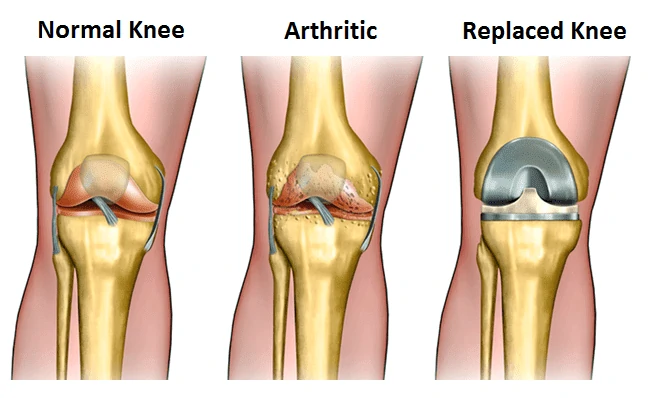Knee arthritis can be very painful in some cases. It can make it difficult to walk, sit, lie down, climb stairs, etc. A patient who is suffering from this condition might think about whether he needs knee replacement surgery or not. So today in this blog, I will tell you about the signs that indicate the need for knee replacement surgery.
Knee arthroplasty surgery can help reduce pain and restore the functioning of severely damaged knee joints. It involves cutting away damaged bone and cartilage from the thigh, kneecap, and shin and replacing them with an artificial joint (prosthesis) made of high-grade plastics, metal alloys, and polymers.
How Common Are Knee Replacements?
Knee replacement surgery is a common procedure performed on more than 600,000 people each year across the world. More than 90% of persons who receive total knee replacements report a reduction in knee pain and improved function.
How To Judge Whether You Need Knee Replacement For Knee Arthritis?
It is very common for patients with knee arthritis to get confused about whether they need a knee replacement or not.
If you have the problem of knee arthritis, you can judge the need for surgery by certain symptoms.
- When knee pain becomes so severe that it prevents you from doing the things you want or need to accomplish.
- Your pain continues or recurs over time.
- You feel pain in the knee during and after exercise.
- When non-surgical therapies such as physical therapy, medication, and the use of a cane or other walking aid are no longer effective, knee replacement may be a possibility.
- Your mobility isn’t what it used to be.
- Sitting in a car or a movie theatre causes your knee to stiffen.
- You feel pain in rainy weather.
- Knee pain makes it difficult for you to sleep.
- You notice a reduction in knee mobility or the extent to which you can bend your knee.
- Your knees are swollen or stiff.
- You find it difficult to walk or climb stairs.
- It is difficult for you to get into and out of chairs.
- Long-lasting knee inflammation and swelling that doesn’t get better with rest or medications
- A bending of your leg inward or outward.
- NSAIDs don’t work for you or you can’t tolerate them.
An orthopaedic surgeon can help you determine when and if knee surgery is necessary, as well as which type of knee surgery is best for you. You may not be a candidate for knee replacement surgery if you do not have enough bone, have an infection, or if the bone is not strong enough to support an artificial knee.
In general, doctors prefer to delay total knee replacement as long as possible in favour of less invasive procedures. Having said that, if you have advanced joint disease, knee replacement may offer you relief from pain and the ability to return to normal activities.
Does Knee Arthritis Always Require Surgery?
Surgery is not always required for knee arthritis. Perhaps you’re putting off going to the doctor because you fear having knee replacement surgery if you have knee pain.
Don’t worry! The majority of patients with arthritis of the knee do not require surgery. The extent of your pain and its impact on your daily activities will determine whether you are treated with oral pain medication, then with injections, before considering surgical options.
Click here to contact for more information


